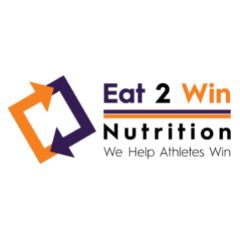Use of Omega 3 for Brain Health and Concussion
Q&A for Session #9
Michael Lewis, MD, MPH, MBA, FACPM, FACN
Sports Nutrition Symposium 2.0
Friday January 22nd @12pm CST
While not a drug or “cure,” omega-3 fatty acids are a powerful nutritional tool. They are perhaps the single most important supplement that should be recommended for patients to maintain brain health as we age as well as those younger athletes at risk of head injury.
All live sessions are free to attend. If you want lifetime access to the sessions from Sports Nutrition Symposium 1.0, 2.0 and 3.0 then check out the VIP Pass!
- What are your thoughts on keto diet and keto drinks for brain health and preserving cognition during aging? Canada has recently launched a brain drink made with MCTs. Thanks for your excellent presentation!
- I think they're great. Keto diets are great for most people but not everyone can tolerate it. I’m a bigger fan of going the extreme but then drifting back through paleo, to a Mediterranean and back to a normal diet. But I’m a huge fan of keto in the short term for people who need to reset. Such as if they’re very into sugar.” Sustainability is very difficult.
- Per the National Institutes of Health, why does ALA have a recommended AI, but neither EPA nor DHA?
- ALA (18 C chain omega-3) can get elongated and desaturated into EPAs and DHAs; Therefore EPAs and DHAs are not considered essential because they can get made from ALA. However, that said, the conversion from ALA consumed to the amount of DHA that shows up and incorporated into the brain tissue is like less than 1%. ALA is not readily converted to EPA and DHA, but that said, it still is so it's considered an essential fatty acid but EPA and DHA are not. FDA said the combined amount of EPA and DHA that is generally recognized as safe is 3,000mg combined.
- In terms of decreasing inflammation, should you take fish oil supplements several hours away from your workout? Does timing matter?
- It’s fat so timing doesn't matter in the long run. Taking a normal digestive amnt takes 12 weeks-3 months to reach saturation level. But once you reach that it’s there in fat stores so it won’t make so much of a difference in the acute phase of keeping inflammation in control. It’s not like an antioxidant that will give a quicker effect, it takes awhile to reach the saturation but once it’s there it’s readily available.
- Are DHA EPA supplements needed if adults consume fatty fish meals at least 2-3 times per week?
- Get your blood checked to see what your omega 3 index and your omega 6 levels are and what your 6:3 index is, that’s the most scientific method. But I can tell you that most people do not get 3 good meals of fatty fish but even then it varies by the individual (absorption, etc.).
- Is the 40mg/kg based on DHA or total omega 3?
- EPA + DHA
- Does Plant sources of Omega 3's still help decrease inflammation (ALA type)?
- ALA, not as much, but when you say plant sources, few come to mind (leafy greens, flaxseeds, high in ALA etc.) and they have different effects (Most are very positive). Other plant stores are algae. Fish get their Omega-3s from eating algae and they concentrate it. They figured out you can grow algae in big vats and you can extract the omega 3 and DHA oils off the algae and process it into supplements (DHA and some EPA) from the algae source. Plant based eaters have an alternative with these, using algae based oils. Ultimately it's the amount of molecules that reach the bloodstream. So 50mg of a phospholipid and 50mg of algae DHA are not the same as 1,000mg of DHA from a fish oil supplement.
- Can the suicide trend with DHA deficiency be explained by a lower rate of self-care in general?
- How about a bad diet in the military? If you want to consider that as self-care. One of the issues with doing nutrition research is that you cannot isolate nutrition. We try but if you think you are going to do studies in nutrition just like you do studies in pharmaceutical drugs that target a specific enzyme, you’re setting yourself up, it’s just not the same. Suicide studies are one of the more complicated things to study because there are always a lot of environmental factors that go into that. But we wanted to focus on that and we shared a very compelling argument that DHA is something that needs to be considered and it's often ignored when it really shouldn’t be.
- Are you worried about omega 3 causing increased bleeding risk?
- Not at all. High doses, sure, you’re going to get easier bruising but for someone to say if you take omega 3s you're going to bleed to death, even in the hospital, is one of the most absurd, stupiud, ignorant arguments I have ever heard and it's not just my argument. People much smarter than me will say the same thing. Bob Martindale, general surgeon says “We have to put this myth to rest.” There is no research behind the claim, not an issue and he even goes as far as requiring his patients to take Omega 3’s before surgery because the outcomes are so much better.
- Any specific brands that you recommend for Omega-3 supplementation?
- Triglyceride based: Klean Athlete, Nordic Naturals (NSF certified), Thorne liquid (Not NSF certified), Naturelo
Any liquid to be not caustic has to be in a triglyceride form. You cannot put ethyl ester in liquid form because it would be so horrible no one would take it. Put ethyl ester in a capsule and then you can sell it (cheap and simple). But it takes a lot more engineering and cost to take a cleaned ethyl ester and put it back into a triglyceride base form. That's why good triglyceride forms are expensive, because it takes a lot of work and cost to get it into that form. (No additives, which is the best.)
- Triglyceride based: Klean Athlete, Nordic Naturals (NSF certified), Thorne liquid (Not NSF certified), Naturelo
- What is the relationship between cannabis oil and the cannabinoid system?
- The Cannabinoids system is stimulated by cannabis. How it was discovered was by looking at THC and asking “well why does THC make you high?” and that's when they found there were receptors in the brain (CB1 receptors) that the THC stimulated and they were like “well we don’t have receptors in the brain for plants” and that's when they discovered that we have endogenous receptors in our brain that, if they are going to stimulate the cannabinoid system then that’s what they are going to call them.
- Doses for adolescent athletes vs adults?
- 40 mg/kg (use that); But if you’re going to use 3,000mg for a generic, one-size fits all recommendation, then no. Especially for smaller kids, but if you use the 40mg/kg (guiding dose) as the dose and then multiply it 2-3x for that loading phase period.
- I thought there still wasn't a lot of research for CBD - what studies are your favorite for how it works well with omega 3's?
- Speaker states based on own experience, but not a lot of published research. There is a lot of research underway compared to 10 years ago, but he is not aware of any particular studies being done looking at the synergy between omega 3’s and CBD.
- Do you recommend CBD with terpenes? A presentation at FNCE a few years ago highly recommended it.
- Highly recommends a broad or full spectrum CBD oil. CBD oil is not just CBD, full- spectrum includes things like omega 3’s, omega 6’s, vitamins, minerals, terpenes, CBG, and CBN and all other cannabinoids we know so little about. THC and CBD are two of the most prominent variations we are aware of, but there is so much more to the cannabis plant.
He never recommends purified (90%) CBD oil. There are too many problems with this. You get so much better effect with a full spectrum of cannabinoids.
- Highly recommends a broad or full spectrum CBD oil. CBD oil is not just CBD, full- spectrum includes things like omega 3’s, omega 6’s, vitamins, minerals, terpenes, CBG, and CBN and all other cannabinoids we know so little about. THC and CBD are two of the most prominent variations we are aware of, but there is so much more to the cannabis plant.
- Do you have a blood test or lab that you refer?
- Doug Beavise’s lab: Lipidlab.com
- Omega Quant
- Quest or Labcorp will do a lipid panel
- What research is lacking that would confirm your recommendations in mainstream medicine and sports nutrition?
- Three quality studies: Sports-prophylactic study (bigger); Acute concussion study in sports clinic or university (placebo controlled) to look if it really does help speed up the recovery process; in Chronic patients (6-24months out still struggling with concussion symptoms) can you improve their lot in life even months to years down the line and see if these protocols can help. All comes down to funding.
- What additional ingredients do you want to avoid in omega-3 supplements that affect absorption?
- Not that he’s aware of. That said, he’s been modifying his protocols as he’s become a fan of some of the supplements that have other ingredients in them along with the Omega-3’s to maybe come up with more of a “protocol.”
Examples- products that combine things like babacopa, curcumin, phosphatidylcholine, and other things along with the fish oil. Working with a manufacturer of how to combine omega 3’s with these others sources on a protocol basis.
- Not that he’s aware of. That said, he’s been modifying his protocols as he’s become a fan of some of the supplements that have other ingredients in them along with the Omega-3’s to maybe come up with more of a “protocol.”
- Can you comment on the synergistic impact of adding magnesium, creatine, flavonoids, and curcumin?
- Looking at combining three products (memory, inflammation, focus) all based on omega-3’s and when you put them all together you are getting a bunch of those other things such as the best quality turmeric on the market and 3,100 mg of EPA/DHA. Looking towards trying to go with a new protocol version.
- What research is lacking that you would confirm your recommendations in mainstream medicine and sports nutrition?
- He would do three high quality studies-
- A sports prophylactic study that is large.
- Acute concussion study in sports clinic/university setting and do a placebo controlled, where you can look at does Omega 3 really help up feed the recovery process.
- In chronic patients with those 6 months out still struggling with post-concussion symptoms, can you improve their lot in life even months to years down the line. He would look at 6-24 months people have been struggling as their enrollment criteria and see if these recovery protocols would help.
- He would do three high quality studies-


